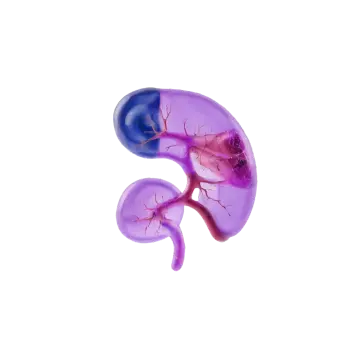What is chloride?
Chloride belongs to the group of electrolytes together with potassium and sodium, among others. In interaction with these and other electrolytes, chloride acts for the body's cells to function normally and for the kidneys to be able to regulate the fluid and salt balance in the body. Chloride is part of the stomach's hydrochloric acid and contributes to a functioning digestion.
Why is chloride analysed?
As chloride is important for the body's normal fluid and salt balance, the substance is good to analyze when assessing the functionality of the kidneys.
Chloride in diet
Chloride is found in ordinary table salt, which consists of sodium and chloride, which together become sodium chloride. Sodium chloride is found naturally in milk, a glass of milk provides about 30% of the daily need for chloride.
What can low value of chloride mean?
Decreased or low levels of chloride are seen with loss of hydrochloric acid from the gastrointestinal tract, with heavy sweating, conditions with increased bicarbonate content in plasma, treatment with certain drugs such as e.g. diuretics, hormonal disorders, kidney disease.
What can an elevated value of chloride mean?
Elevated value of chloride are seen in metabolic acidosis, a condition that occurs with elevated hydrogen ion concentration in body fluids. The condition is especially seen in people with diabetes or kidney failure. Hyperosmolality, dehydration, a condition that occurs when the body does not take in more fluid than it gets rid of.
Symptoms of reduced kidney function
The symptoms of chronic kidney failure, or chronic kidney failure, develop slowly. They can only appear when kidney function becomes so impaired that waste products begin to accumulate in the blood, then they can express themselves like this:
- loss of appetite
- nausea
- vomiting
- fatigue
- itching
- impaired muscle strength.

























